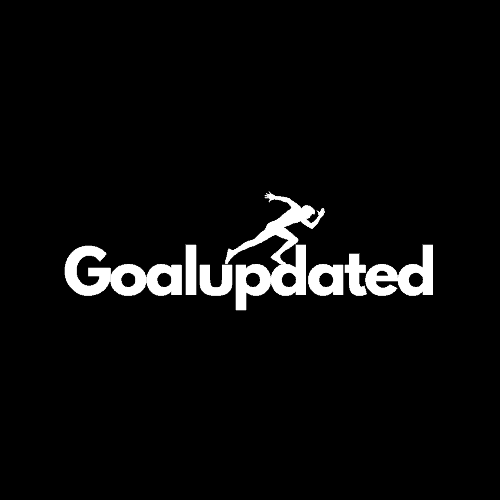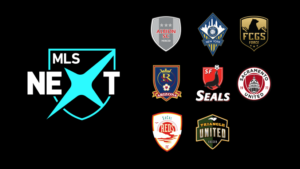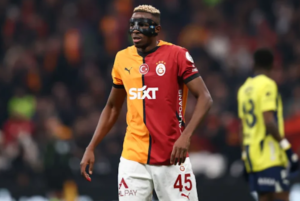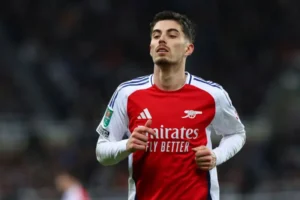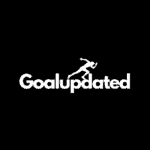Erik ten Hag has overseen a huge improvement at United, but the club still look clumsy when it comes to agreeing transfer fees and squad planning
United: Take a moment to digest this fact: Last summer, Manchester City generated more transfer revenue than Manchester United had in the past decade. City raked in £143 million ($183m) from the sales of players like Raheem Sterling, Oleksandr Zinchenko, and Gabriel Jesus, enabling them to turn a profit despite investing £95m ($121m) in the signings of Erling Haaland and Kalvin Phillips.
On the flip side, Manchester United amassed a meager sum of £11m ($14m), primarily derived from the sale of Andreas Pereira to Fulham. In contrast, they splurged a massive £208m ($266m), with £85m ($109m) alone going towards the acquisition of Antony.
Pereira proved to be a valuable asset for Fulham, contributing to 10 goals over the season and playing a crucial role in their impressive return to the Premier League. Antony, on the other hand, had a relatively lackluster season for United, registering just six goal involvements in the league. He scored only once between November and May and didn’t provide an assist until April. In fact, he ended the season with the same number of assists for United in the Premier League as he had for Ajax in the Eredivisie.
While comparing the prices of players from different age groups, positions, and career trajectories may appear opportunistic, considering their performances last season, it is reasonable to conclude that United undersold Pereira while significantly overpaying for Antony.
Every club makes errors in the transfer market, and deals can only be fully evaluated in hindsight. However, United’s dealings in the transfer market, both in terms of buying and selling players, have highlighted their poor negotiation skills. There seems to be little improvement in their approach, as evidenced by their recent agreement to pay up to £60m ($51m) for Mason Mount, despite his contract with Chelsea set to expire. Furthermore, their handling of contract negotiations with David de Gea, retracting their offer after the player had accepted the terms, resulted in his departure from the club under farcical circumstances.
As United engage in negotiations with Inter for Andre Onana, Atalanta for Rasmus Hojlund, and other players to strengthen Erik ten Hag’s squad for the upcoming season, opposing clubs are well aware that they can take advantage of Manchester United’s shortcomings in the negotiation process.
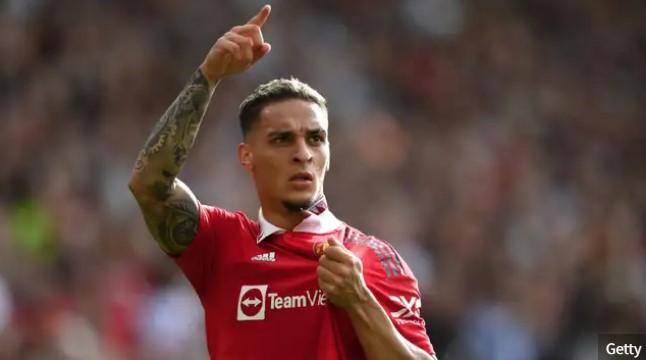
Paying through the nose for Antony
One contributing factor to Manchester United’s tendency to overpay for players is their approach of focusing on one target at a time and becoming fixated on securing that particular player, regardless of the cost. This singular focus often leads them to pay exorbitant fees.
An example of this can be seen in their pursuit of Antony from Ajax last summer. Despite Ajax’s reluctance to sell the talented Brazilian winger, United displayed a strong desire to acquire him. Ajax’s former chief executive, Edwin van der Sar, who is also a former United goalkeeper, acknowledged that Ajax held the upper hand in negotiations.
Van der Sar revealed to The Athletic, “We would have liked to keep him here one year longer, as there was no urgent need to sell him. We had funds available. However, the transfer fee became exceptionally high. We challenged United to push the limits.”
At the beginning of the summer, United had stated that they would not exceed a fee of £60m ($51m) for Antony. However, they eventually ended up paying £85m ($109m), depleting their funds for the January transfer window. While Liverpool managed to secure Cody Gakpo, who was also a target for United, Ajax manager Erik ten Hag was only able to secure loan signings in the form of Wout Weghorst and Marcel Sabitzer after losing Cristiano Ronaldo in November.
This illustrates how United’s singular pursuit of a specific player can result in inflated transfer fees, leaving the club with limited financial resources for further reinforcements.
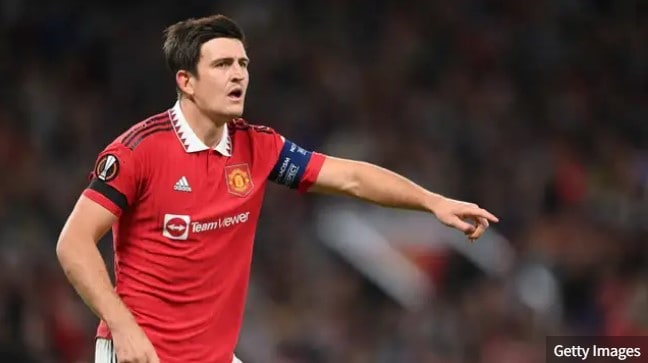
Outbidding City for United Maguire
It was a similar story with Harry Maguire. The England centre-back was Jose Mourinho’s No.1 target in 2018 after an excellent World Cup, and he was available for £60m ($51m), but United were not willing to back the Portuguese manager.
The following summer, after Maguire’s stock had risen even higher, City also expressed interest in the defender, leading Leicester to demand £100m for him. City drew the line at £70m, so United agreed a price of £80m.
Four years on, and Maguire is fifth in the pecking order of United centre-backs, starting only eight Premier League matches last season and even losing his place in some games to left-back Luke Shaw.
While he suited the style of football that Mourinho and Ole Gunnar Solskjaer wanted to play and is still a key player for England manager Gareth Southgate, Maguire struggles in possession and with the higher defensive line Ten Hag favours.
United would be willing to sell Maguire this summer, but have reportedly set a £50m price tag. That is likely to put potential suitors off and could lead to his real price dropping even further as he enters the final two years of his contract. In trying to get the best price for Maguire could instead lead United into getting a worse one in the long term.

Need City’s courage to walk away
One thing that sets City apart from United in negotiations is their willingness to walk away from a deal. Last summer they were interested in Marc Cucurella from Brighton, but cooled their interest when they were quoted £45m. They opted to bring in Sergio Gomez from Borussia Dortmund instead, paying just £15m. Cucurella, meanwhile, moved to Chelsea for £55m ($70m) and had a terrible debut season. Gomez did not do well for City either, playing just 340 minutes of Premier League football and starting two games, but by shifting their focus, City demonstrated they would not be fleeced.
Sometimes, they simply sign players in different positions. After pulling out of the Maguire deal in 2019, City decided they did not need a new centre-back after all, promoting Eric Garcia from the academy and spending their money on Rodri (£59m) and Joao Cancelo (£55m) instead.
City also turned away from deals for Kalidou Koulibaly and Jorginho after baulking at the price, and did the same with Declan Rice this summer after West Ham rejected their bid of £90m, leaving Arsenal to snap up the England midfielder instead.
